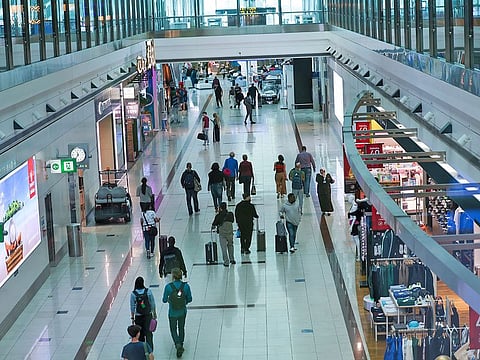India-Pakistan conflict: Tourists hit by travel chaos extend holidays in UAE
Travel agents report surge in enquiries following India-Pakistan ceasefire

Dubai: Scores of Indian and Pakistani tourists visiting the UAE have opted to extend their stay by a week or two amid the travel chaos caused by the recent India-Pakistan conflict. Travel agents in the UAE have confirmed a trend where, despite cancellations for outbound travel to both India and Pakistan, many tourists from these nations, who were already in the country when the fighting broke out, have chosen to remain in the UAE until news of the conflict “completely subsides.”
Their decision was driven by a desire to avoid travel disruptions and a ‘perceived sense of greater safety’ in the UAE during the four-day conflict.
According to Safeer Mahamood, General Manager at Smarts Travel, most visitors are “frequent to the UAE.”
He explained, “Many tourists who applied for the one-month extension to their tourist visas are VFR (visit friends and family) travellers. They are also predominantly from North India, where flight cancellations and disruptions were commonplace this past week.”
Mahamood said, “Many of these travellers intend to return to India and Pakistan mid-May when fares and geopolitical tensions ease.”
From tourists to residents
Some travellers want to convert their visit status to a residency visa by purchasing a property.
According to Sapna Aidasani, Head of Marketing and Public Relations at Pluto Travels, many high-net-worth travellers have also purchased property in the UAE and converted their visit status into residency.
“As the situation in India and Pakistan turned more volatile, many high-net-worth individuals and investors also decided to purchase property in the UAE and move base here,” said Sapna.
She added, “Many others are choosing to take extended holidays. Travellers sometimes had to exit the country for a visa change. These tourists went to nearby countries like Georgia, where visas are easy to acquire, spent a few days there, and came back on new visas.”
Did airfares rise?
On Monday morning, the Airports Authority of India (AAI), which manages air navigation services, revoked the NOTAM (notice to Airmen) that had mandated the temporary suspension of civilian flights to nearly 32 airports until May 15. Commercial operations have resumed at destinations such as Amritsar, Bikaner, Chandigarh, Jaisalmer, Jammu, Srinagar, and the remaining 26 airports. This comes after India and Pakistan agreed to a ceasefire after 4 days of intense fighting.
Following this, Afi Ahmed, Chairman of Smart Travels, said there had been a slight increase in airfares, particularly for flights to North India. He said that while Pakistani airspace variations had an impact, Indian carriers still faced longer routes, leading to a price parity.
Both agents reported a surge in enquiries following the ceasefire. Ahmed anticipates a 10-15 per cent increase in demand from those impacted by travel and individuals on visit visas who chose to stay longer.
“Rates have increased dramatically, with fuel burn being a key consideration. We’ve seen about a 25 per cent increase, with North flights now costing around Dh800-900 and one-way fares reaching Dh1,200,” explained Ahmed.
Airports in Amritsar and Chandigarh, reliant on main airports like Lucknow, experienced numerous cancellations.
Mahamood also pointed out that summer leisure travellers heading to Kashmir and Manali were significantly affected, with some opting for alternative destinations in the South. He said many travellers, especially in the North sector, cancelled their plans due to the uncertainty.
Following the deadly Pahalgham attack on April 22, which killed 26 tourists, India took several punitive measures against Pakistan, including expelling diplomats and suspending the Indus Waters Treaty.
The situation escalated further on May 7, when India launched "Operation Sindoor," conducting air and missile strikes on what it claimed were terrorist infrastructure sites within Pakistan and Pakistan-administered Kashmir. Pakistan responded with its own strikes, and heavy cross-border firing resulted in casualties on both sides.
After days of intense military exchanges, a ceasefire was announced on May 10, following international mediation.
Sign up for the Daily Briefing
Get the latest news and updates straight to your inbox






